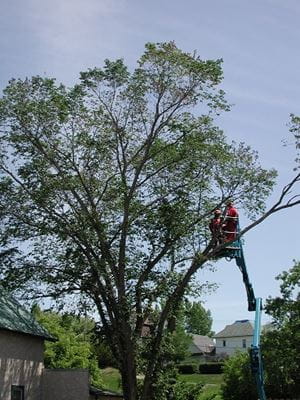Released on July 25, 2022
Dutch elm disease (DED) puts Saskatchewan's urban and rural forests at risk, especially in the eastern half of the province. Slowing the spread of DED is a critical part of forest health.
To support the 2022-23 DED program, the Ministry of Environment has contracted Regina-based Northern Tree Co. Inc., to remove and dispose of infected elm trees in high-risk areas. Early detection and prompt removal of diseased American elm trees is key to slow the spread of this disease.
"Dutch elm disease is an ongoing concern for Saskatchewan residents and wildlife," Environment Minister Dana Skoropad said. "We are pleased to continue working with a local company on this important initiative to protect and maintain our urban and rural forests."
To prevent the disease from spreading into urban forests, the DED program manages wild elm trees in buffer zones established around high-risk communities, including:
- Balcarres
- Estevan
- Indian Head
- Melfort
- Moose Jaw
- Regina
- Tisdale
- Wolseley
Survey contractors will be in these areas over summer marking trees for removal. Northern Tree Co. Inc. will follow with removal of diseased trees in the fall and early winter.

Remember: It's illegal to use, transport, store or buy elm firewood. Do not prune elms between April 1 to August 31. If you suspect a tree may have DED, or for more information, contact the Ministry of Environment's Inquiry Centre at 1-800-567-4224 or centre.inquiry@gov.sk.ca.
For more information on Dutch elm disease, including signs and prevention tips, visit: Dutch Elm Disease | Forest Health | Government of Saskatchewan.
-30-
For more information, contact:
Colleen Book
Environment
Phone: 306-798-3900
Email: colleen.book@gov.sk.ca

